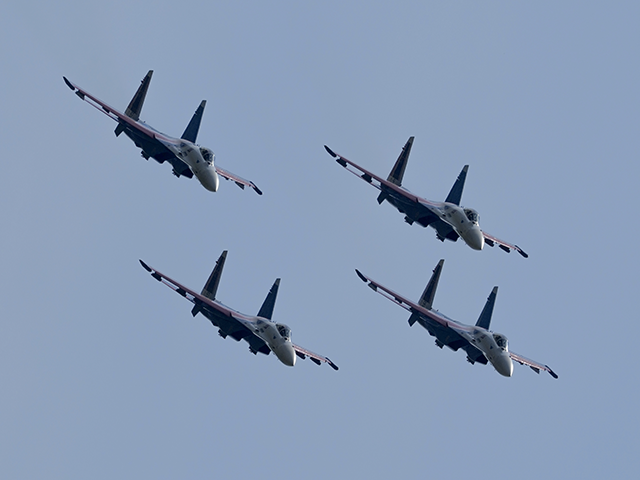Russian military aircraft entered South Korea’s air defense identification zone (ADIZ) on Tuesday without giving Seoul prior notice, prompting the Republic of Korea Air Force to scramble fighter jets in response, Yonhap News Agency reported.
“Regarding the Russian military aircraft’s entry into KADIZ, our military took tactical steps in preparation against possible accidents,” South Korea’s Joint Chiefs of Staff (JCS) said in a statement.
South Korea’s ADIZ is “not territorial airspace but is delineated to call on foreign planes to identify themselves so as to prevent accidental clashes,” Yonhap noted.
Seoul did not disclose details of the Russian military aircraft that entered South Korea’s sensitive air zone on August 23, such as their number or type. Russia’s Defense Ministry issued a press release on August 23 which strongly suggested that the air contingent consisted of two strategic bombers and accompanying fighter jets.
“Two strategic long-range bombers Tupolev-95MS have performed a scheduled flight in the airspace over the international waters of the Sea of Japan,” the news release said.
“The flight lasted about 7 hours. Sukhoi-30SM fighters of the Russian Aerospace Force provided protection,” according to the defense ministry.
“At certain stages of the route the Tupolev-95MS planes were escorted by South Korea’s F-16 fighters,” the statement revealed.
The Russian Defense Ministry’s mention of South Korean fighter jets “escorting” its twin bombers on August 23 seems to support Seoul’s statement that it scrambled fighter jets to confront the Russian military aircraft in South Korea’s ADIZ.
The encounter between Russian and South Korean military aircraft over the Sea of Japan on Tuesday comes “amid tensions between Seoul and Moscow over the latter’s invasion of Ukraine and the former’s participation in international moves against the armed conflict,” Yonhap observed.
Russia’s defense ministry claimed that its military aircraft flew over the Sea of Japan on August 23 as part of a “regular” patrol mission,” though the action’s timing conspicuously coincided with joint military drills taking place this week on the Korean Peninsula between U.S. and South Korean armed forces.
The joint military exercises kicked off on August 22 and were scheduled to last through September 1. Reuters described the event on Monday as “the largest such drills since 2017 after being scaled back because of COVID-19 [Chinese coronavirus] and as [South Korean President] Yoon [Suk-yeol]’s predecessor [Moon Jae-in] sought to restart talks with Pyongyang, which has called the exercises a rehearsal for invasion.”
Russia’s government expressed “concern” on August 24 over this week’s joint military exercises between America and South Korea. Russian Foreign Ministry spokeswoman Maria Zakharova said Moscow viewed the “large-scale” drills as causing “serious concern in Pyongyang,” adding that they appeared to the Kremlin as “counterproductive and dangerous.”
Continuing, Zakharova stated:
We negatively view steps that lead to an escalation of tensions. As a state bordering the Korean Peninsula, Russia is interested in upholding and strengthening lasting peace and stability there, and favors promoting dialogue and normalizing relations between the two Korean states without any interference from outside forces, and [favors] sorting out the problems of the sub-region through peaceful, diplomatic means.
North Korea on July 13 recognized the independence of Donetsk and Luhansk, which are Russian separatist entities in eastern Ukraine, joining only Russia and its puppet state Syria. Russia began its latest war with neighboring Ukraine on February 24, just 72 hours after the Kremlin announced plans to officially recognize the independence of Donetsk and Luhansk on February 21. Moscow formally refers to the breakaway states as the “Donetsk People’s Republic (DPR)” and the “Lugansk People’s Republic (LPR).”

COMMENTS
Please let us know if you're having issues with commenting.